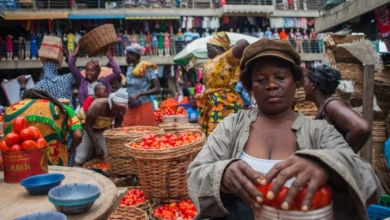Ghana’s Domestic Chicken Production Poised for Growth in 2024

- The U.S. Department of Agriculture (USDA) predicts a significant boost in domestic chicken production in Ghana this year.
- Ghana's domestic poultry industry has struggled to keep pace with the national demand of 400,000 tons of poultry meat annually.
- The Ministry of Food and Agriculture (MoFA) is actively promoting the development of a robust and competitive domestic poultry industry.
The U.S. Department of Agriculture (USDA) predicts a significant boost in domestic chicken production in Ghana this year. Their forecast estimates a rise from 60,000 metric tons in 2023 to 70,000 metric tons in 2024.
Factors Driving the Increase:
- Reduced Feed Costs: Favorable harvests from the 2023/24 planting season are expected to bring down corn prices, a key chicken feed ingredient. Stable prices for other feed components like soybean meal are also anticipated.
- Increased Demand for Domestic Chicken: Ghanaian consumers are placing a higher priority on fresh, healthy protein sources, leading to a rise in demand for live birds during holidays and potentially making domestic production more attractive compared to imported frozen chicken.
- Government Initiatives: The second phase of the government’s “Planting for Food and Jobs” program (PFJ 2.0) is expected to provide a significant boost to domestic chicken production. Additionally, higher import duties are incentivizing local production to meet the ever-growing demand for chicken meat.
Addressing the Demand Gap:
Ghana’s domestic poultry industry has struggled to keep pace with the national demand of 400,000 tons of poultry meat annually. Local production currently falls short, ranging between 50,000 and 57,871 tons. This gap is filled by poultry imports, with broiler meat accounting for over 80% of the total meat imports.
The Road Ahead:
The Ministry of Food and Agriculture (MoFA) is actively promoting the development of a robust and competitive domestic poultry industry. This initiative aims to:
- Revitalize the broiler industry
- Increase domestic chicken production
- Reduce reliance on imported poultry products
- Generate employment opportunities
Ultimately, this strategy seeks to improve livelihoods and contribute to Ghana’s economic growth.






